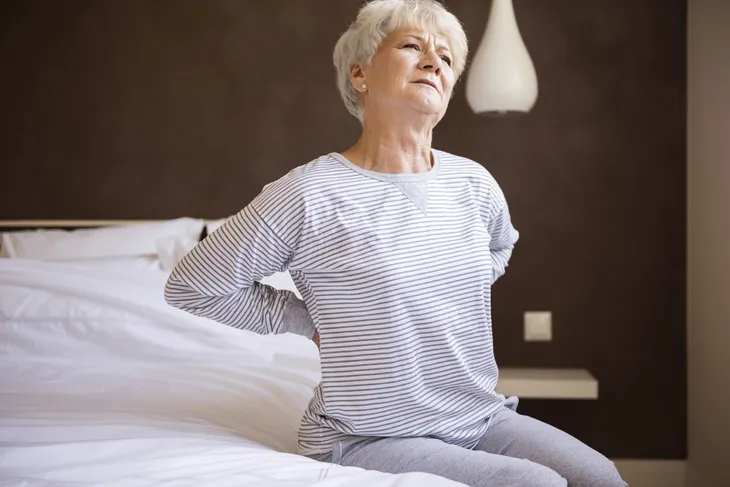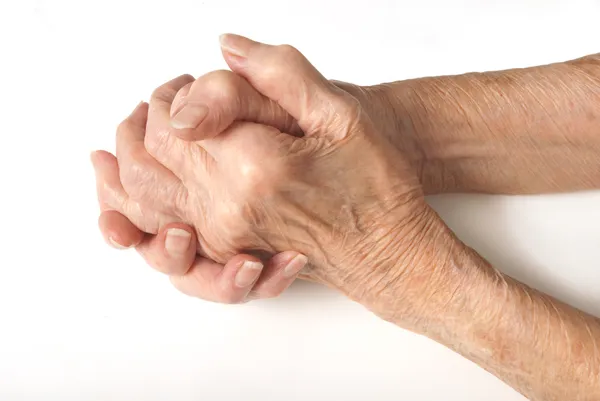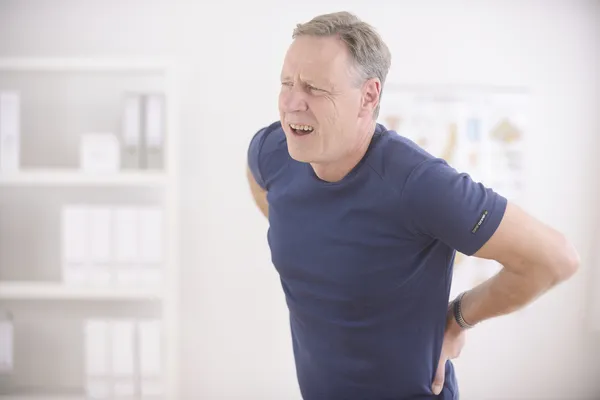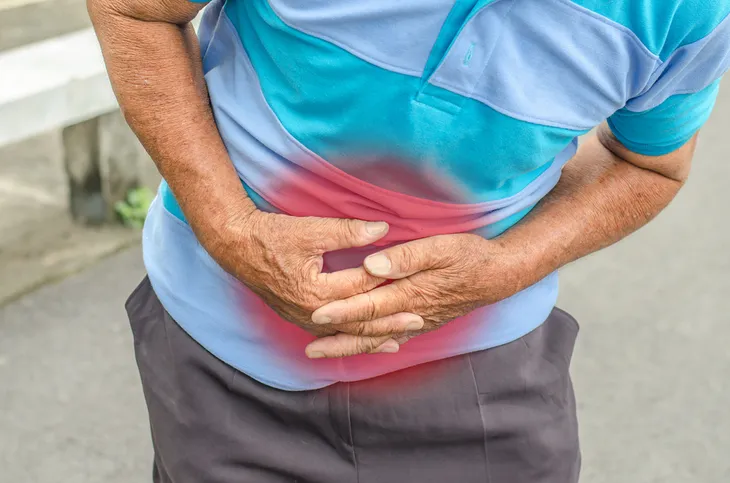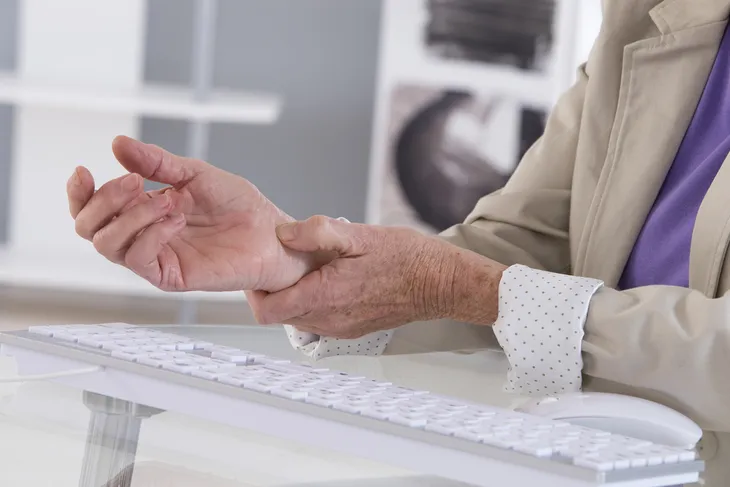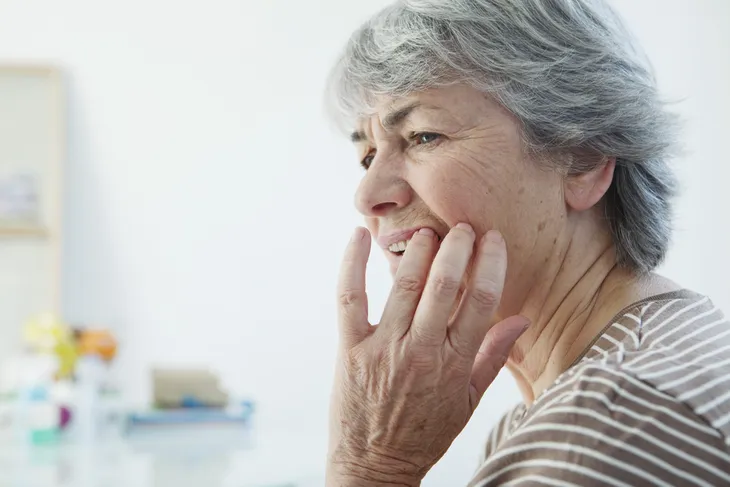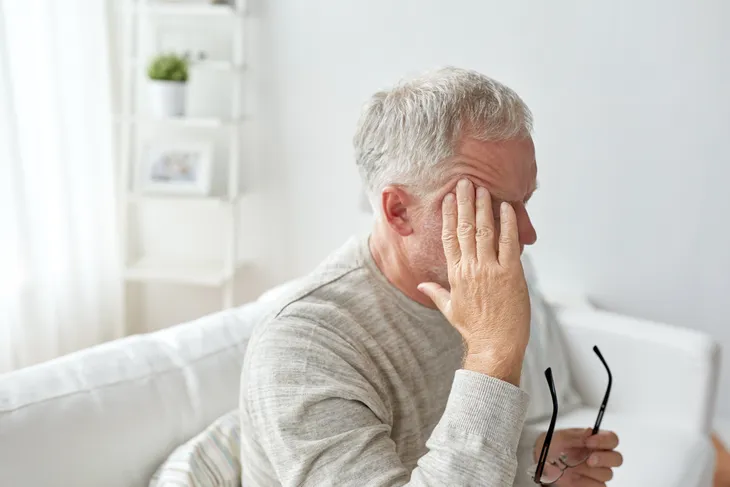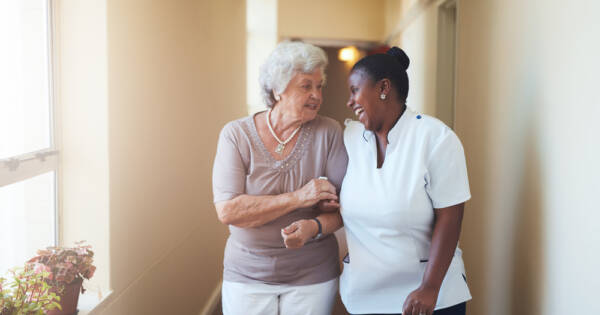If you’ve ever spent some time with older adults, like your grandparents, then there’s a good chance you’ve heard the line “whatever you do, don’t get old.” Half joke, half advice, it’s a testament to the pain that can accompany aging.
For many adults, both young and old, pain is a part of daily life. While the young can feel pain just as much as their parents and grandparents, the tendency is for people to experience more pain as they age. It’s the result of the slow deterioration of the bones, muscles, and connective tissues. The good news is that there are a number of relatively simple ways to limit how much of this pain you feel on a daily basis.
Want senior content delivered straight to your inbox? Sign up for our exclusive email list and receive articles and news on diet & nutrition, fitness, and mental health dedicated specifically to our senior audience!
Back Pain
One of the most persistent types of pain associated with aging is back pain. This can be related to a number of age-related issues, particularly the breakdown of the bones and connective tissue comprising the spine. These bones and tissues can begin to weaken over time, making it easier to sustain an injury. Additionally, many middle-aged and older adults spend copious amounts of time sitting, which can put undue stress on the back, particularly the lower back.
Back pain is particularly bothersome because it affects just about any type of movement (e.g., sitting, standing, and even lying in bed). The best way to treat it is through moderate stretching that gently works the back muscles. If back pain is persistent, it’s important to do these exercises regularly, even when you’re not in pain. Additionally, regular exercise can keep muscles in the back loose, making them more resilient. The result could be a stronger back that’s capable of withstanding strains.
Arthritis
Perhaps the most familiar pain associated with aging is arthritis, or inflammation of the joints which can be felt in the hands, wrists, knees, hips and feet. It’s closely tied to aging, because it’s typically caused by the breakdown of cartilage in and around our joints. Arthritis can also emerge as a result of injury or a long history of intense physical activity, such as playing sports or working in other physically demanding jobs (such as construction).
As with many other age-related conditions, the key to fighting arthritis is to stay active. This doesn’t have to mean intense physical activity, such as cycling or running, but can involve simply walking around the neighborhood each day, practicing yoga, or swimming in a community pool. Even this kind of moderate exercise can encourage circulation and help maintain the muscles in and around the joints. If the pain is particularly bad, your physician can prescribe medication for treating very painful bouts of arthritis.
Muscle Strains
Just as the progressive breakdown of bone can lead to spinal problems and arthritis, the deterioration of muscle can lead to pulled muscles and pain. Individuals who spend much of their day sitting rather than moving about are particularly susceptible to muscle strains because their bodies are not always prepared for movement.
The key to preventing muscle strain is to keep the muscles ready for action. This means getting moderate or, if possible, intense physical exercise several times each week. Doing so can help keep the muscles loose and make you more better capable of withstanding or recovering from a pulled muscle. Of course, over-the-counter drugs, such as ibuprofen and naproxen, can also help treat a muscle pull, just be sure to use them in moderation and talk to your doctor if the muscle pain lasts for more than a few days.
Abdominal Pain
Many people experience more abdominal pain/discomfort as they age. This is because, over time, our bodies can struggle to process certain types of food. The result can be feeling bloated, gassy, uncomfortable, constipated, and even nauseous.
While there are a number of natural and drug-based treatments for abdominal pain — from drinking peppermint tea to using bismuth — abdominal pain could be related to a wide variety of problems, from issues processing food to the emergence of growths that make it difficult to pass food through the body. Your doctor can help you get to the root of the problem and take steps to overcome abdominal pain.
Carpal Tunnel Syndrome
Carpal tunnel syndrome emerges when the nerves in the arms, wrists and hands become constricted and irritated by muscle and connective tissue. This often occurs because an individual has spent an inordinate amount of time using a keyboard, a process that places undue pressure on the hands, wrists, and forearms. Using certain types of machinery can also cause carpal tunnel syndrome. A family history of carpal tunnel syndrome or severe arthritis can also be a contributing factor.
Taking over-the-counter pain medications, regular stretching and exercises of the wrists, arms and hands can help treat minor cases of carpal tunnel syndrome, but in more extreme cases surgery may be required.
Tooth Pain
Staying physically active is an important part of keeping many of the pains on this list at bay. But getting outside for a walk, run, or cycle session won’t do much good when it comes to tooth pain, which is often caused by not brushing and flossing regularly or failing to make regular visits to the dentist for examinations and cleanings.
In the past, when dental care was generally less affordable or accessible, many older adults were forced to remove their teeth and use dentures to avoid struggling with regular tooth pain. Today, there’s less need for dentures but regular cleanings and visits to the dentist remain crucial in preventing tooth pain from becoming a daily problem.
Headache
Older adults are more likely than their younger counterparts to suffer from regular headaches, including migraines, that can make carrying out basic activities, such as going to work and preparing dinner, very difficult. The problem, in many cases, is stress, which can cause muscle tension in the back, neck, and even face muscles. In time, this tension can lead to painful headaches. Additional factors include dehydration (not drinking enough water or consuming too much coffee or alcohol, or both), changes in the weather, and going through physiological changes (such as menstruation).
Many people respond to a headache by reaching for an over-the-counter painkiller, such as acetaminophen or naproxen, but this fails to address the root of the problem. A physician can help you determine if the issue is related to stress, weather, or something else entirely. They may also prescribe medication that’s more capable of fighting headaches than over-the-counter drugs.

